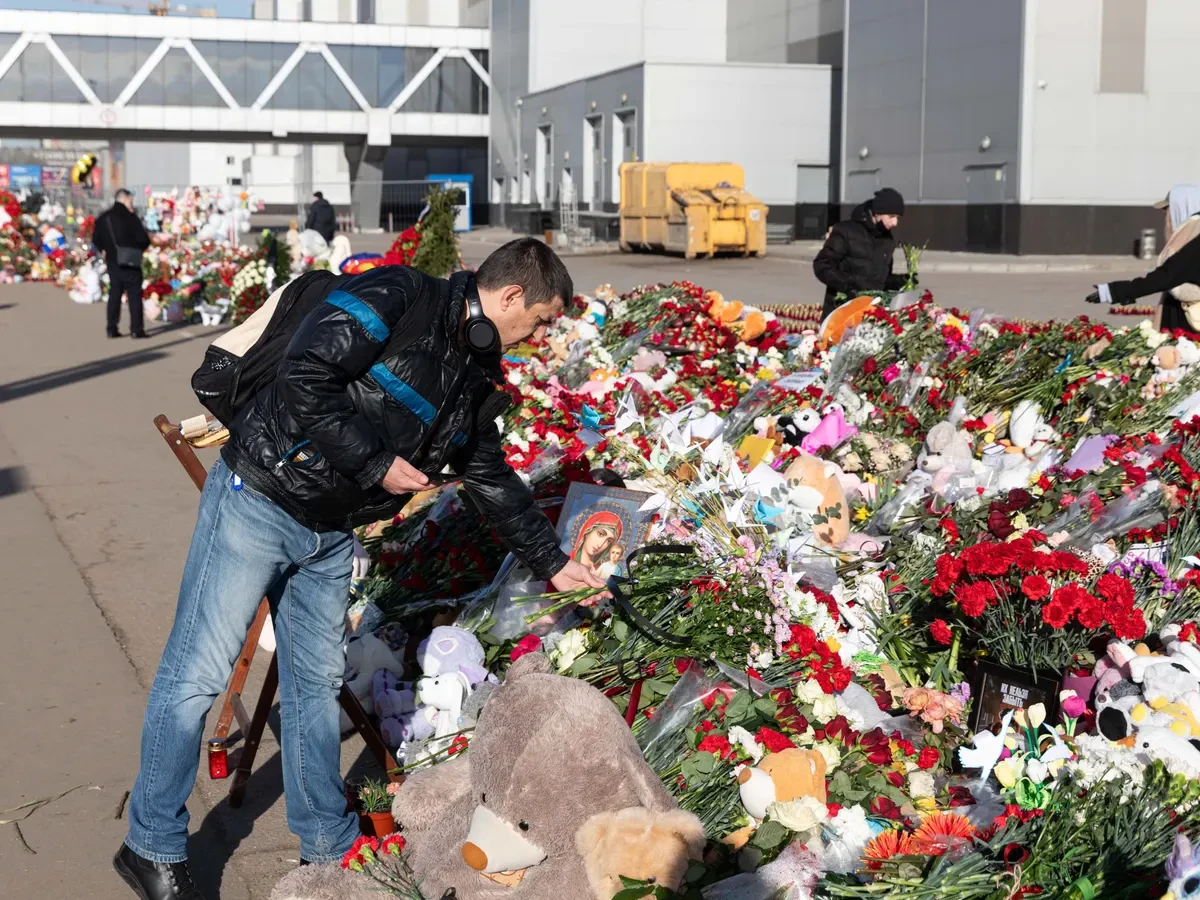Russian conflicts with Islamists key to Moscow attack: analysts

Stay tuned with 24 News HD Android App

Russia's conflicts with Islamist forces over half a century are key to understanding the likely motives behind an Islamic State massacre last month at a Moscow concert hall, analysts say.
From the Soviet invasion of Afghanistan in 1979 to Russian involvement in Syria and Africa and the Kremlin's links with Iran, Moscow has often played a role in conflicts involving radical Islamist interests.
Russia has said it detained 12 people over the March 22 attack, including the four gunmen who shot dozens of concert-goers and then set the Crocus City Hall venue on fire in the deadliest attack in Russia for two decades.
But while the authorities appear determined to uncover potential links between the attackers and Ukraine, analysts say any involvement of Russia's neighbour invaded by President Vladimir Putin's forces in February 2022 is very unlikely.
IS itself has called doubts about its involvement "conspiracy theories", noted Laurence Bindner, co-founder of the JOS Project which provides analysis of extremist groups.
The group's sympathisers, too, had "protested with irritation or irony" on jihadist sites against anybody backing an alternative explanation, Bindner told AFP.
'Fury among jihadists'
"Russia is an obvious target for historical and contemporary reasons," said Jerome Drevon, jihadism expert at the Crisis Group, an NGO dedicated to conflict resolution.
"The Soviet Union's invasion of Afghanistan in 1979, and the subsequent decade of occupation, still arouse fury among many jihadists, as do Russia's two domestic wars in Chechnya in 1994 and 2000," he said.
Moscow subsequently allied itself with Syrian leader Bashar al-Assad in the civil war between his regime and jihadist rebels.
In Africa, meanwhile, Russian mercenaries have been fighting Al-Qaeda and IS forces in Mali, alongside the regular army.
Moscow has also been getting closer to Iran, whose Shiite leadership is viewed with hostility by the Sunnis in charge at IS.
"IS perceives Russia as the vanguard of the Shia world," said Colin Clarke, head of research at the Soufan Center, a non-profit organization analysing global security challenges.
On the list of what IS "hate the most", he said, "Shias are above the US, Israel and so-called apostate regimes", a reference to some Middle Eastern governments that IS and Al-Qaeda say are corrupt and fail to apply true Muslim beliefs.
'Schizophrenic'
Islamists are also deeply resentful of Moscow's treatment of Muslim minorities in Russia, notably because of the Chechen wars, and the 1999 crushing of an Islamist rebellion in Dagestan, a Russian republic.
Frederik Kagan, a researcher at public policy think tank the American Enterprise Institute, also pointed to Moscow's apparent tolerance towards anti-Islam attitudes at home targeting immigrants from Central Asia and the Caucasus, while also preaching national unity, a stance he called "schizophrenic".
Putin had also "supported efforts to coerce migrant workers into the Russian army to fight and usually die in Ukraine to spare ethnic Russians from that fate", Kagan said.
"This combination of factors has surely increased the conduciveness of conditions in the Russian Federation to IS-style recruitment and radicalization," he said.
Anti-migrant sentiment targeting Muslims in Russia has been growing since the invasion of Ukraine, said Temur Umarov, a fellow at the Carnegie Russia Eurasia Center.
Analysts polled by AFP said they believed there was a threat of further attacks in Russia, given the large number of people of Muslim background there with grievances against the government.
The near-exclusive focus of Russia's security apparatus on the Ukraine conflict might further encourage would-be attackers, they said.
IS often singles out young people in its recruitment drive, said Andrey Serenko, a Russian Afghanistan expert.
Typical targets for recruiters were "young guys aged 15 to 16 in Kazakhstan", seen as receptive to "a certain romantic cult" that was being created "around jihadist narratives", he said.
Experts said an angry online reaction by jihadist sympathizers to images of the Moscow theatre attack suspects showing signs of torture could help pave the way for coming attacks.
"The broadcasting of the torture is seen as justifying the Crocus Hall attack after the fact," said Bindner.
This, she said, amounted to "an additional grievance used to mobilise new potential attackers".
